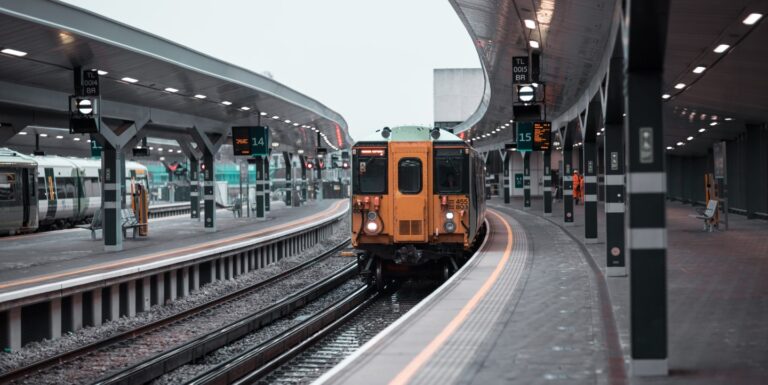COVID-19 and the added challenges to those with spinal cord injury
Who would have thought when welcoming in 2020 that within 3 months we would find ourselves in the midst of a world-wide pandemic that would completely change the way we go about our daily lives? I for one did not! The COVID-19 pandemic has taken the world, this country and our local communities totally by surprise; and whilst incredible efforts are being made by individuals and communities alike to fight the beastly virus, the impact of this disease and the lockdown can be seen and felt everywhere. But for those who already face challenges in their day to day lives the pandemic has been particularly devastating.
SCI Awareness Day
Today is Spinal Cord Injury Awareness Day (15th May 2020) and I would like to use this occasion to highlight some of the difficulties that those with spinal cord injury are facing as well as share some stories so that, as a society, we can build on these experiences to ensure that we are better prepared to protect those who require additional help in the event of future virus threats. As a solicitor representing those with spinal cord injuries (‘SCI’), I am all too aware of the challenges that many of my clients face on a day to day basis and the way in which their health and daily lives have been affected in many different ways during this pandemic
The ‘new normal’ for SCI community
The BBC recently aired a Panorama programme following people in the most vulnerable categories. I felt that this programme highlighted the very real struggles which many of my clients with spinal cord injuries are also facing on a daily basis. These include care visits cancellations, delays with essential medical treatment and prescriptions; issues with food provisions and the real mental challenges of self-isolation. As the weeks of lockdown turn into months this is fast becoming the ‘new normal’ for many spinally injured people.
Impact on daily care
Many of my spinally injured clients are currently part of the Government’s shielding initiative which means that they currently have to stay at home at all times. This is not because of their spinal cord injury itself but as a result of secondary complications common with SCI such as reduced respiratory function or increased risk of infection. For them, catching the virus could be fatal so shielding is required but this in turn raises questions about what people should do about their care.
Understandably there is a real concern amongst those who rely on professional carers that those visits could potentially expose them to the virus. Equally I know that many carers are concerned about exposing their clients to the virus. Whilst social distancing is being encouraged it is impossible for carers to provide the many aspects of personal care and keep a safe distance. Instead carers need to rely on personal protective equipment to keep their clients and themselves safe. However we have all heard or read about the difficulties companies are facing sourcing appropriate personal protective equipment and the social care sector has been particularly badly affected by this. As a result many people have been forced to make some really difficult decisions to fully self-isolate. This has meant stopping their professional care visits and instead relying on family members, where possible, to provide that essential care. The impact of this must not be underestimated. Many choose to employ professional carers rather than rely on family because, understandably, they do not want their family assisting with their personal care. Similarly providing care for a loved one can be a heavy burden. The provision of care can put an enormous physical and emotional strain on people’s relationships at the best of times let alone in these testing times.
Without regular care there can be additional risks that cannot be understated. These could include missing essential medication, malnutrition, risk of pressure sores (for example if the injured person requires regular re-positioning by carers) and risk of further injuries/falls (for example, during transfers).
Medical treatment
One of my spinally cord injured clients with a high level of spinal cord injury had to be recently admitted to hospital for bowel obstruction which if untreated could prove fatal. It was such a worrying time for my client and his loved ones who were naturally scared for him to go to a hospital treating COVID-19 patients at the same time yet knowing that without this urgent treatment, he might not have survived. It was clear that the hospital staff were all too aware of the risks for my client to be admitted but there was no other alternative. Fortunately for my client and his family, he was able to return home shortly after the treatment and remains well.
My client’s family commented:-
“On 17 April my dad was admitted to hospital because of a blocked bowel, he came home and then had to return because it reoccurred. We could not accompany him because of the COVID pandemic. The whole situation was nerve wracking, there was so much anxiety. We feared that he would pick up the virus, with the news reporting that elderly and vulnerable people were more at risk, so we thought the worst.
After the treatment the carers wanted him to stay in hospital because they did not have the capacity to look after him over the weekend, I had to insist that he came home. There was so much added stress because of COVID”.
Situations like this one are so unprecedented and it is clear that the hospital staff were trying to do their best whilst navigating these truly uncharted waters.
Social isolation
As detailed above many people with SCI are being forced to self-isolate and as well as the practical difficulties which come with this, the impact on people’s mental wellbeing also cannot be understated. Being unable to have visits from friends and family makes it so much more difficult for people to cope and stay positive.
Other challenges
There are many other ways in which the daily lives of those with spinal cord injuries are being affected. Weekly food shopping has always been a challenge for many with SCI given mobility issues now made all the more challenging with stock shortages, long queues, additional risks with public transport and issues with online shopping. Similar difficulties are encountered with other essential products to ensure safe bowel and bladder care. The cost of some of these continence items has risen quite significantly in the recent months.
SCI Charities
Never has the role of charities supporting those with spinal cord injuries and their families been more vital than now. The charities themselves have also had to adjust the ways in which they can support their members.
Spinal Injuries Association (SIA)
The SIA, a charity that we work with very closely, has re-deployed its workforce and volunteers to ensure that help can be provided in these particularly challenging times.
Their website is an invaluable source of advice and information on the effect of COVID-19 on the SCI community with latest briefs, online meetings with experts, videos and regularly updated government advice.
They have also expanded their advocacy team to help ensure proper care and health provision is available to those with spinal cord injuries.
Spinal Injuries Association is building a network of partners to support their members in all aspects of their lives and can signpost to the relevant services and other charities.
As I write this in the comfort of my own home, my mind turns to those currently in SCI rehabilitation centres across the UK facing long hospital stays with the added challenge of not being able to see their loved ones.
I can’t begin to imagine what it must be like to go through SCI rehabilitation amidst this pandemic, where one is not only coming to terms with a life changing injury but on top of that, is facing the further worry of catching the virus which for some could be fatal.
Horatio’s Garden is another charity close to our hearts. More than ever the gardens, built and maintained by Horatio’s Garden, have been vital in keeping SCI patients positive. These beautiful, fully accessible garden sanctuaries have become indispensable for the SCI patients trying to come to terms with their injury whilst also dealing with the lockdown. Horatio’s Garden has also had to re-invent the ways in which to support the patients including virtual therapies, arty afternoons on YouTube and video tours of the gardens for patients’ families.
Looking to the future
It is important to learn from and build on these experiences. I hope that as a society we can find ways to better protect those at risk in times of crisis such as this one.
In terms of the spinal injury compensation claims, these experiences also demonstrate the need for proper contingencies to be put in place to allow for any additional needs arising for those with spinal cord injuries in crisis situations like this one.










